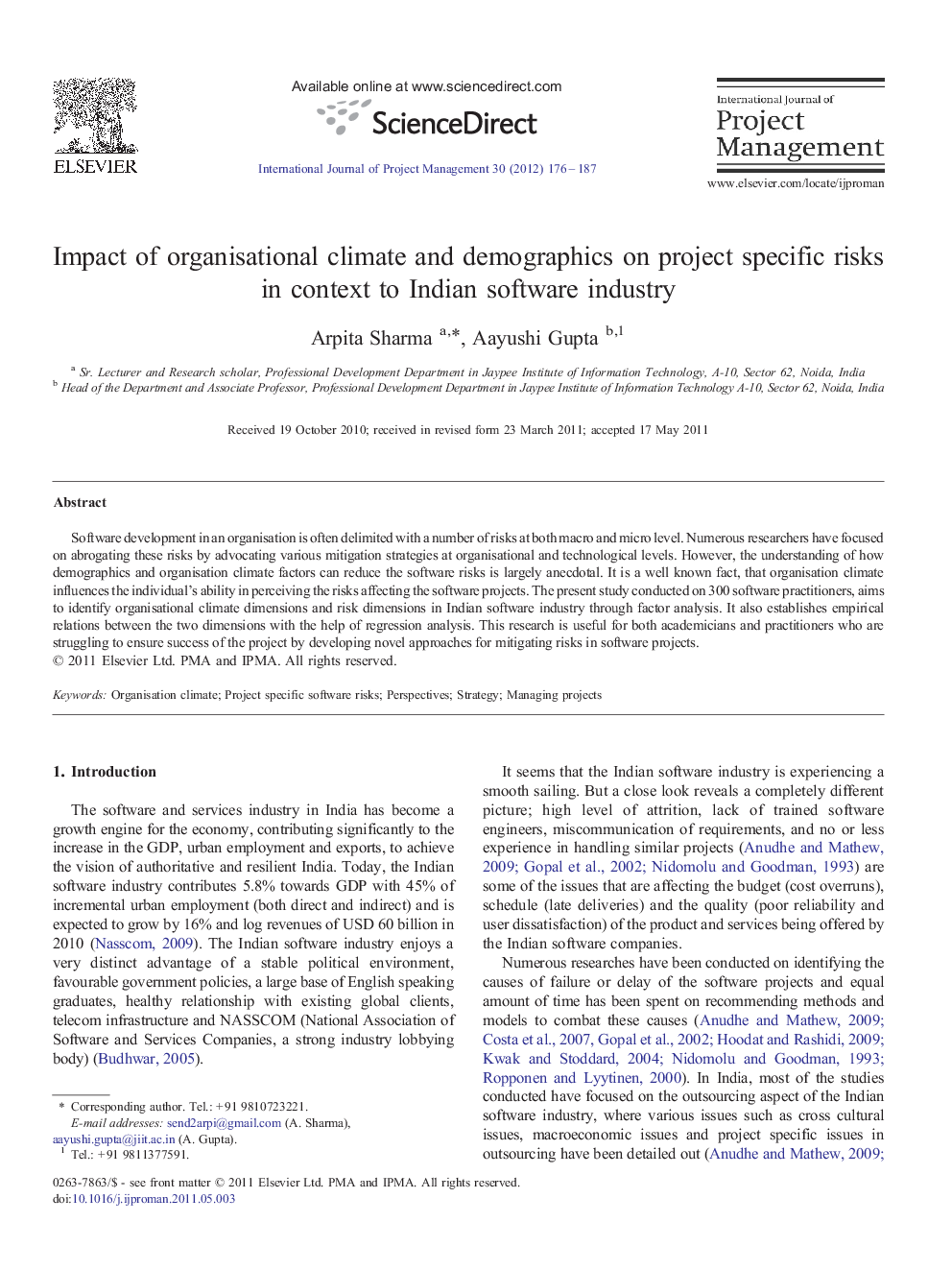| کد مقاله | کد نشریه | سال انتشار | مقاله انگلیسی | نسخه تمام متن |
|---|---|---|---|---|
| 276806 | 1429698 | 2012 | 12 صفحه PDF | دانلود رایگان |

Software development in an organisation is often delimited with a number of risks at both macro and micro level. Numerous researchers have focused on abrogating these risks by advocating various mitigation strategies at organisational and technological levels. However, the understanding of how demographics and organisation climate factors can reduce the software risks is largely anecdotal. It is a well known fact, that organisation climate influences the individual's ability in perceiving the risks affecting the software projects. The present study conducted on 300 software practitioners, aims to identify organisational climate dimensions and risk dimensions in Indian software industry through factor analysis. It also establishes empirical relations between the two dimensions with the help of regression analysis. This research is useful for both academicians and practitioners who are struggling to ensure success of the project by developing novel approaches for mitigating risks in software projects.
Figure optionsDownload as PowerPoint slideResearch highlights
► A list of project specific risk dimensions affecting the software projects in India was prepared.
► A relationship between demographics, organisation's climate and software risks were identified.
► It was found that the risk perceptions greatly vary as the employees move ahead in their career.
► It was also revealed that software risks can be annihilated by transparent organisational climate.
Journal: International Journal of Project Management - Volume 30, Issue 2, February 2012, Pages 176–187